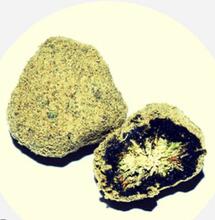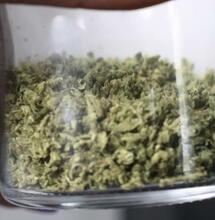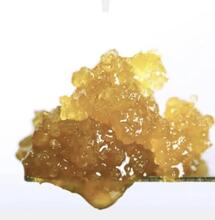Weed vs. Alcohol: A Comprehensive Comparison

When it comes to comparing cannabis and alcohol, it's essential to first grasp the fundamental differences between these two substances. Both possess unique characteristics and effects, which complicates any straightforward comparison
Research and Studies
Unlike alcohol, which has been extensively studied for its long-term effects on health and behavior, cannabis research is still relatively limited. While initial findings may suggest that cannabis appears safer at a glance, we must be cautious, as the absence of extensive research means that certain risks associated with cannabis remain unidentified and not fully understood.
Variety and Consumption Methods
The cannabis market has evolved dramatically, presenting a wide array of products and methods for consumption. Whether through smoking, vaping, edibles, or oils, the method of ingestion can drastically influence both the immediate and enduring effects of cannabis. Each approach carries unique bioavailability, onset times, and durations of effect.
Individual Biological Responses
It is crucial to recognize that the effects of both cannabis and alcohol are highly individualized. Factors including genetics, body weight, metabolism, and personal tolerance levels mean that one person might experience profound effects from cannabis but remain relatively unaffected by alcohol—or the opposite might hold true. This variability complicates any blanket statement regarding their safety or dangers.
What Are The Short-Term Effects of Alcohol?
The acute effects of consuming alcohol can differ significantly from person to person. Common short-term effects can include:
Coordination and Reflex Issues: Alcohol can impair motor skills and hand-eye coordination, increasing the risk of accidents.
Impaired Cognitive Functions; Decision-making abilities diminish, often leading to poor judgment.
Relaxation and Giddiness: Some may experience a temporary sense of euphoria, while others feel drowsy or restless.
Nausea and Vomiting: Excessive consumption may lead to gastrointestinal distress.
Hangover Symptoms: The following day often brings headaches, fatigue, and other discomforts.
What Are The Short-Term Effects of Cannabis?
Similarly, the immediate effects of cannabis can vary among individuals, presenting symptoms such as:
Coordination and Reflex Issues: Similar to alcohol, cannabis may impair physical coordination, increasing the risk of accidents.
Impaired Cognitive Skills: Users may experience altered judgment and cognitive processing.
Relaxation and Anxiety: While many feel relaxed, some may experience heightened anxiety or paranoia.
Physical Symptoms: Common effects are dry mouth, red eyes, nausea, and the infamous "munchies," or increased hunger.
The Verdict
Both substances produce comparable adverse impacts on mental clarity, coordination, and judgment. However, the likelihood of feeling unwell the next day is generally more pronounced with alcohol consumption, given its more substantial hangover effects.
Long-Term Health Risks, Alcohol
Long-term excessive consumption of alcohol carries significant health risks, such as:
Liver Disease: Chronic alcohol use can lead to fatty liver, hepatitis, or cirrhosis, severely impairing the body's ability to detoxify itself.
Pancreatitis: Alcohol is a leading cause of inflammation of the pancreas, which can lead to severe health complications.
Cardiovascular Damage: Prolonged heavy drinking adversely affects heart health, potentially resulting in hypertension and other cardiac issues.
Digestive Problems: Long-term intake can irritate the stomach lining, causing discomfort, ulcers, and digestive complications.
Nervous System Damage: Continuous abuse may bring about neurological issues, manifesting as numbness or tingling sensations in the extremities.
Sexual and Reproductive Health: Long-term alcohol use can lead to erectile dysfunction in men and fertility issues in both genders.
Long-Term Health Risks, Cannabis
While research on the long-term effects of cannabis is still in its infancy, some findings indicate risks such as:
Brain Development Concerns: Studies, including a notable one from 2014, suggest that cannabis use during adolescence may interfere with normal brain development, although it remains unclear whether these effects are permanent.
Psychiatric Disorders:There is a complex relationship between cannabis use and mental health disorders, particularly schizophrenia. Some experts suggest that cannabis could act as a trigger for individuals genetically predisposed to such conditions.
Smoking Related Illness:Using cannabis through smoking or vaping can lead to all manner of respiratory issues as well as other serious lung conditions, including cancer. It's important to consider these potential health risks when choosing to consume cannabis in these forms.
Conclusion
At face value, cannabis seems to entail fewer long-term health risks when juxtaposed with alcohol. However, given the considerable gaps in research concerning cannabis compared to the well-established knowledge on alcohol, making a definitive conclusion proves difficult. Both substances bear the potential for addiction and can lead to physical and emotional dependencies. Ultimately, the debate surrounding cannabis and alcohol remains nuanced. What might be considered safe for one person could pose risks for another, underscoring the importance of recognizing individual responses and the need for further research.
More From Soft Secrets:








